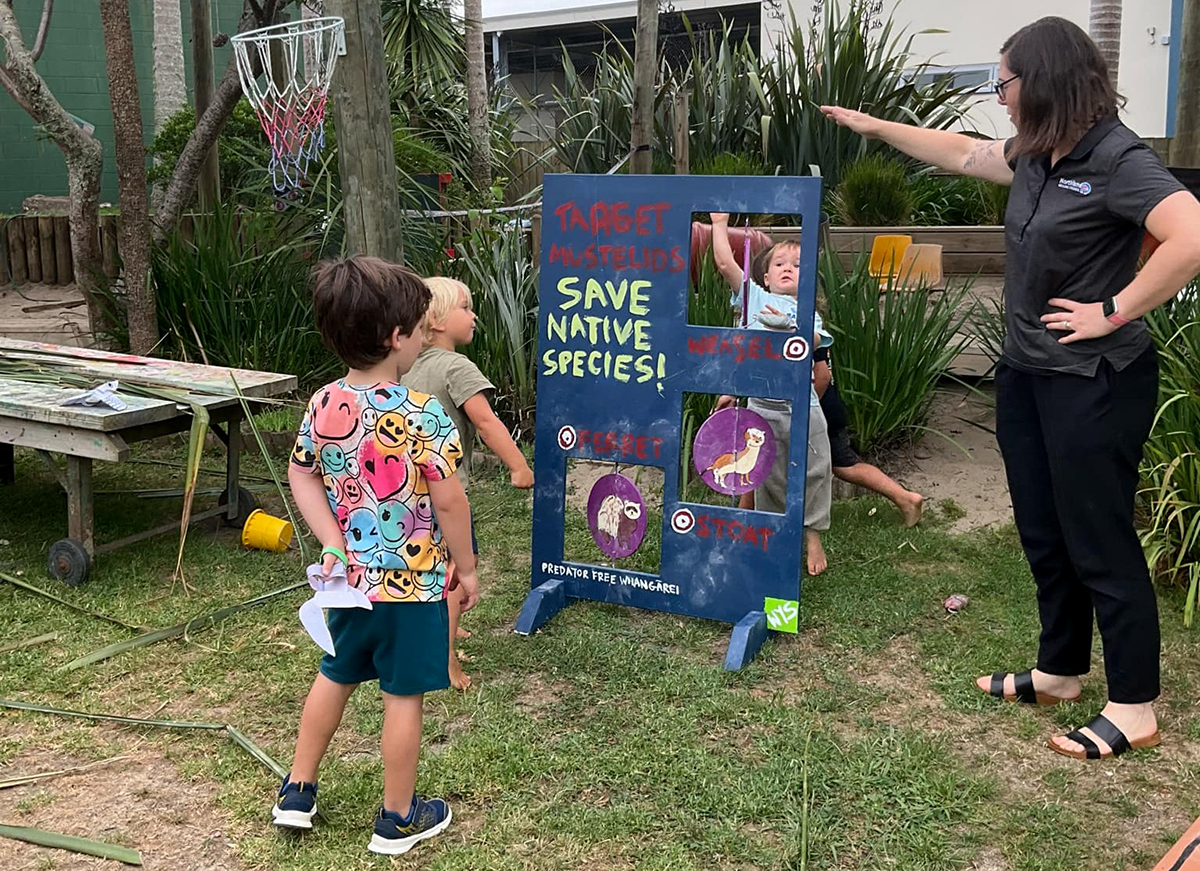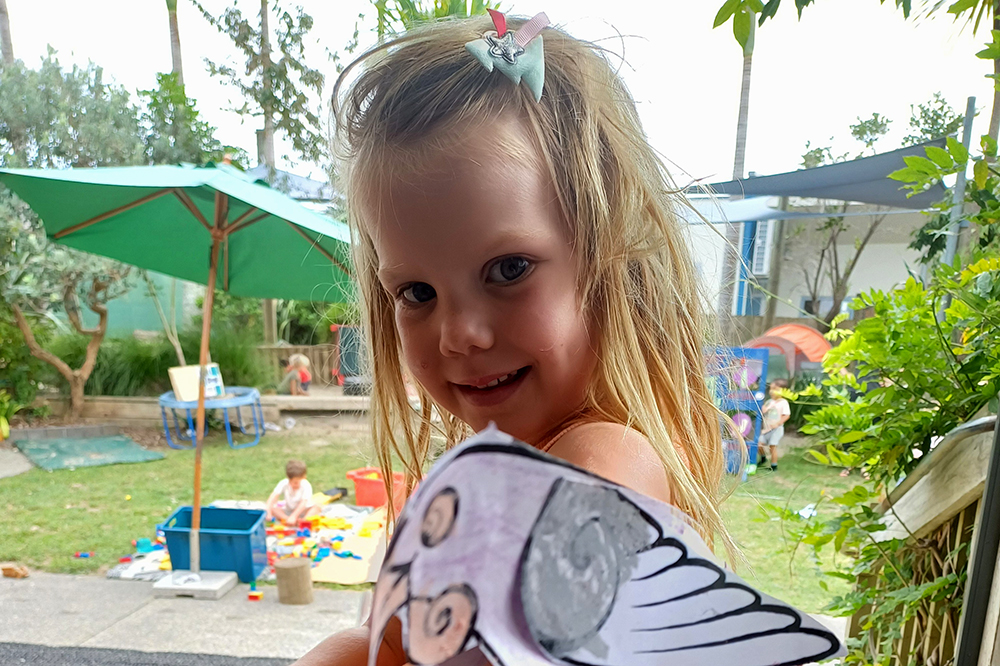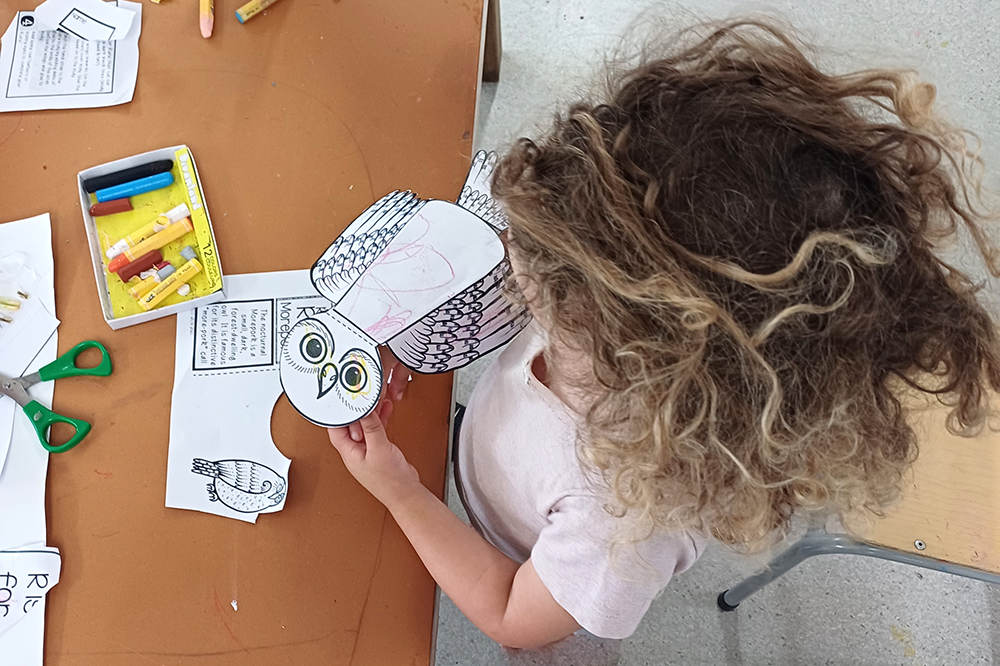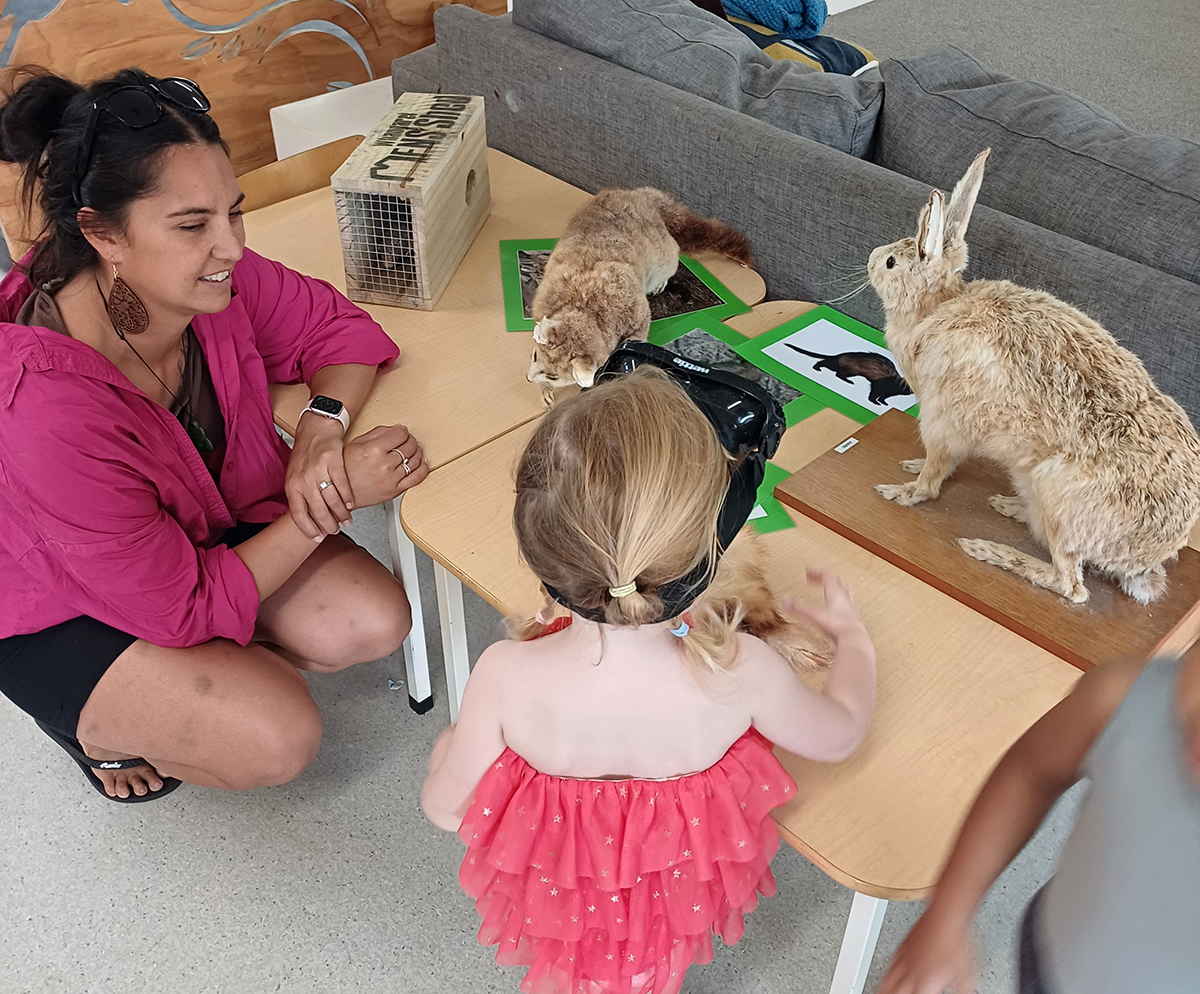Story
Biosecurity boost!
Kerikeri Kindergarten refreshes its biosecurity programme for new kaiako and tamariki.
Kerikeri Kindergarten was buzzing with excitement as Northland Regional Council (NRC) staff Zoe Jeffries (Enviroschools) and Emily Ross (Biosecurity) teamed up with teacher Kim Hall and Northland Regional Council’s (NRC) Emily Ross to refresh their biosecurity programme.
The kindergarten has embraced giving tamariki opportunities to connect with te taiao and be kaitiaki (guardians) through its ngahere (forest) programme, trapping programme, and weekly litter hikoi.
The trapping programme, initially funded by NRC’s Environmental Leaders Fund (ELF), provided traps to the whānau of tamariki attending the kindergarten.
With new tamariki and teachers joining, it was time to re-educate and boost the programme's momentum with a day of fun biosecurity activities.
The day began with a discussion about different traps and predators and was an opportunity for the tamariki to share their previous catches as part of the ngahere programme and at home.
Enthusiastic reports included rats, mice, and possums by some of the children who live more rurally.
Emily, who will soon be part of the Tiakina initiative in Kerikeri, organised engaging outdoor biosecurity games for the children.
Tiakina is a community-led urban initiative focused on communities, kaitiakitanga, and conservation.
The first game was a corn hole-style game with a board designed to look like a rat trap, where the children threw bean bags shaped like rats.

The tamariki played a corn hole-style game with a board designed to look like a rat trap.
The second game was a spinning target featuring pests such as stoats, weasels, or ferrets, and animals to protect, like kiwi, geckos, and penguins.
Zoe ran indoor activities, including creating native bird puppets and learning about precious taonga, and was impressed with the enthusiastic participation of the young group.
"The tamariki are becoming young biosecurity champions. Their involvement and understanding of the importance of protecting native species is crucial for the future of our environment," Zoe said.

New tamariki and kaiako are re-introduced to the biosecurity programme with a day of fun biosecurity activities.

Indoor activities, including creating native bird puppets and learning about precious taonga, helped to re-educate the tamariki on the kindergarten’s biosecurity programme.
Kim who spearheads the kaupapa was thrilled to see the children's growing knowledge about biosecurity.
"It's amazing how much the tamariki already know, but it’s also a great opportunity for them to find out more.”
“It's important for them to recognise different pests, understand why we need to trap them to protect our native birds, and learn to do this humanely," Kim said.
With help from Emily, the kindergarten plans to continue expanding their biosecurity programme by putting tracking tunnels around the centre to better understand which pest they should target.
Kerikeri Kindergarten is no stranger to accolades for its mahi in sustainable education.
They won the Environmental Action in Education Award at the NRC 2023 Whakamānawa ā Taiao – Environmental Awards.
They also recently won a $10,000 scholarship from NKA for its outstanding application for the Enviroschools Education Innovation Scholarship.
The scholarship will fund its participation in 'The Green Educators Experience' at the Green School in Bali in 2025, helping educators further understand sustainability and its role in education.

The tamariki are becoming young biosecurity champions and learning the importance of protecting native species from pests.
